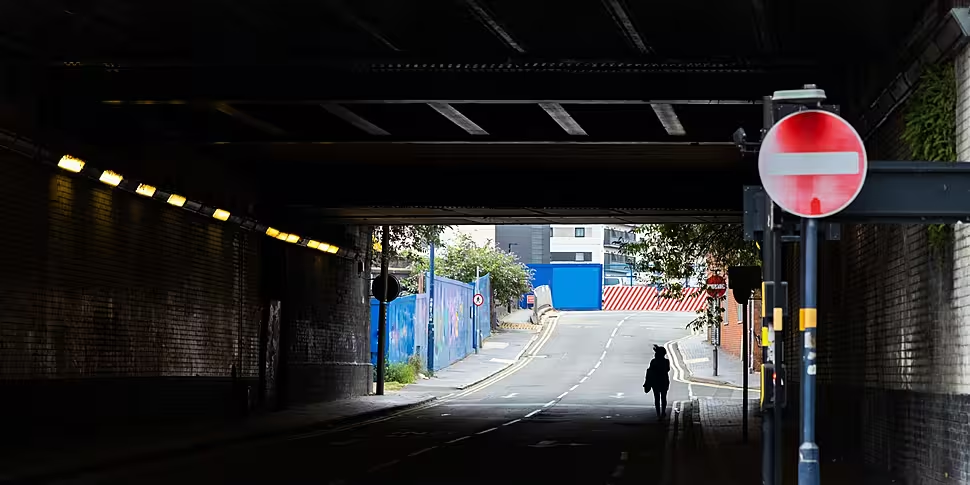Women are almost twice as likely to be worried about being attacked by a stranger, according to a new Government survey.
The Department of Justice survey found that nearly one-in-five women (19%) are worried about being attacked by a stranger.
That compares to just over one-in-ten men (11%).
Meanwhile, women were also significantly more concerned about being mugged or robbed by a stranger (18% compared to 11%).
On Newstalk Breakfast this morning, Rape Crisis Network Ireland (RCNI) CEO Cliona Sadlier said the figures are no surprise.
“This is afraid of being attacked by a stranger,” she said. “The number of those who feel vulnerable is much higher.
“I suppose the only surprise is that the numbers aren’t greater than that.”
Ms Sadlier said 13% of the survivors who come to the RCNI were attacked by strangers.
“[The figures are] not far off, if you like, the evidence for what is actually happening out there,” she said.
“But of course, for every woman that is attacked, every other woman is worried about being attacked.”
Crime
The survey also found that around one-in-seven people are worried about their home being burgled or their car being robbed – with women more likely to worry than men.
In terms of location, people felt most worried about being the victim of a crime when outside and not in their local area (31%).
That was followed by outside in their local area (24%), on public transport (22%) and in the home (20%).
Asked what could be done to make people feel safer in their communities, more than 70% called for more Gardaí on the streets.
Meanwhile, two in five said street lighting needs to be improved.
Safety
Ms Sadlier said asking people what makes them feel safer often leads them towards a security response, which is “only very temporary and possibly ineffective”.
“When you ask people what do they fear and what would make them feel safer, by and large, we are kind of backed into a corner there and our response tends to be a security response,” she said.
“So, if you’re afraid your house is going to be broken into, what would help is more locks on the door. We close down our minds in terms of ... we securitise ourselves.
“For us, that is only a very temporary and possibly ineffective measure. What we really need to be asking ourselves is not how we would feel safer - because then we are being driven and led by the perpetrators - what would be helpful for us is to talk about what would maximise our freedom.
“How would we create a society where we have no locks on our doors at all? That is a much bigger question where the whole community has to engage around that.”
You can listen back here:









